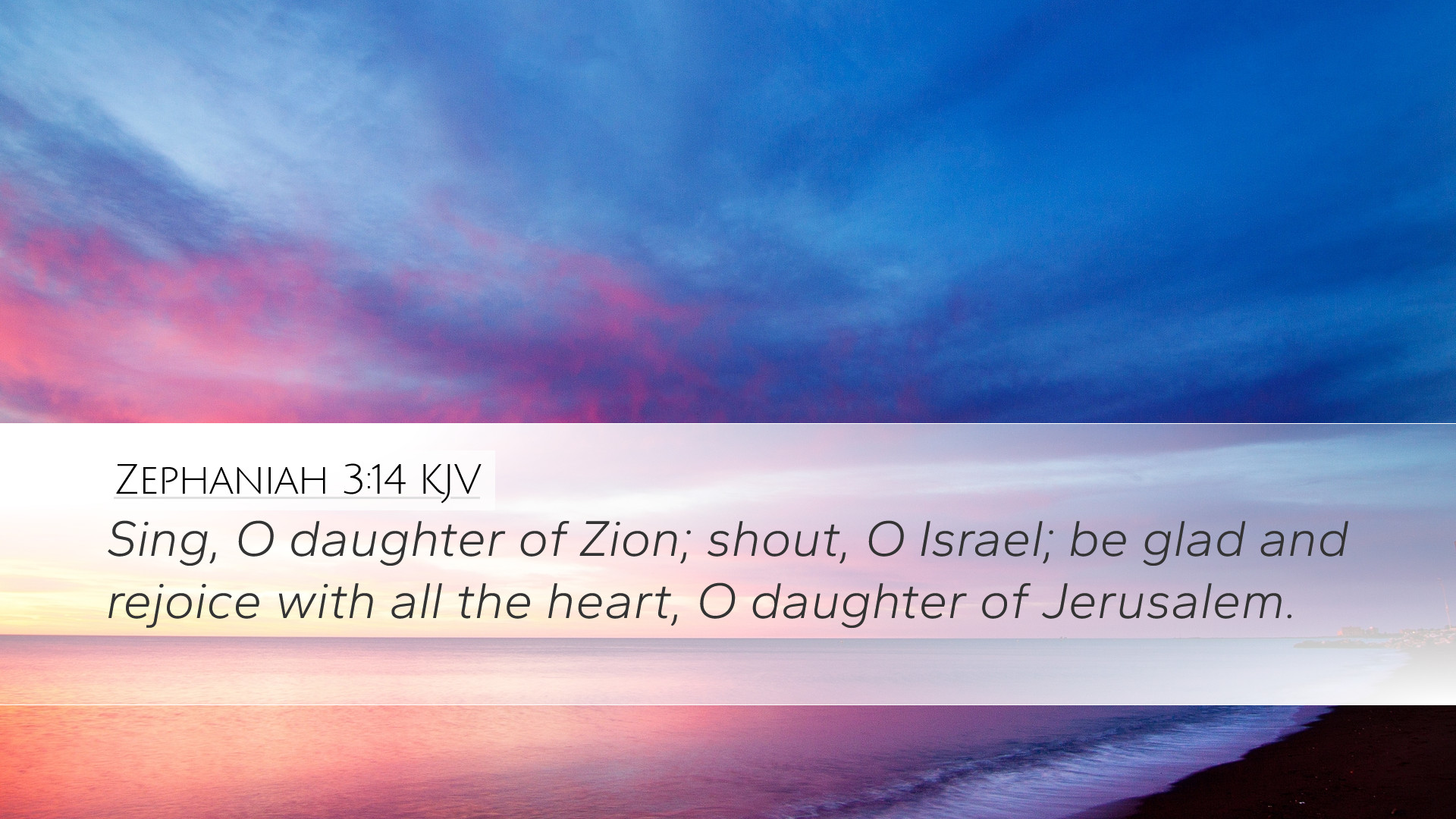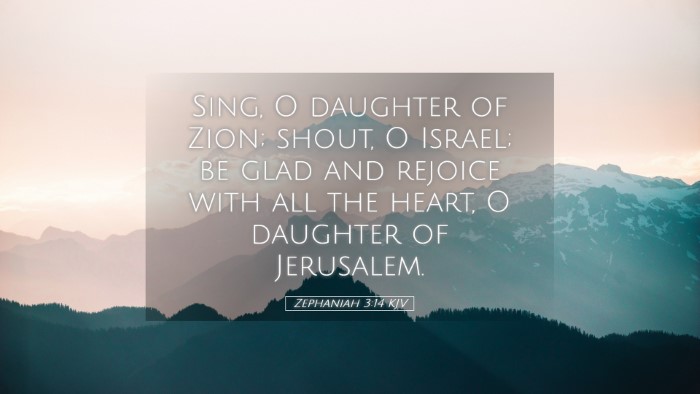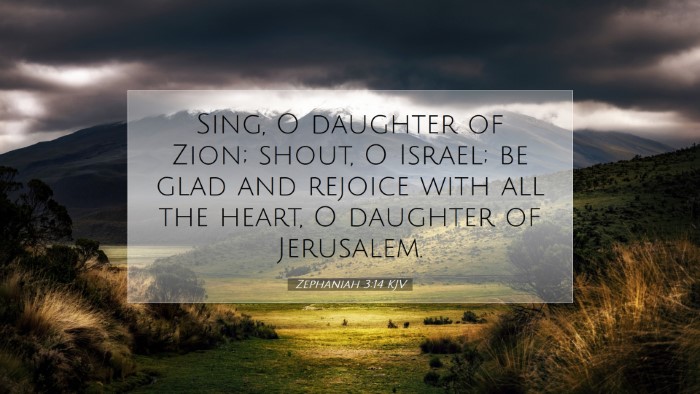Old Testament
Genesis Exodus Leviticus Numbers Deuteronomy Joshua Judges Ruth 1 Samuel 2 Samuel 1 Kings 2 Kings 1 Chronicles 2 Chronicles Ezra Nehemiah Esther Job Psalms Proverbs Ecclesiastes Song of Solomon Isaiah Jeremiah Lamentations Ezekiel Daniel Hosea Joel Amos Obadiah Jonah Micah Nahum Habakkuk Zephaniah Haggai Zechariah MalachiZephaniah 3:14
Zephaniah 3:14 KJV
Sing, O daughter of Zion; shout, O Israel; be glad and rejoice with all the heart, O daughter of Jerusalem.
Zephaniah 3:14 Bible Commentary
Commentary on Zephaniah 3:14
Zephaniah 3:14 states: “Sing, O daughter of Zion; shout, O Israel; be glad and rejoice with all the heart, O daughter of Jerusalem.” This verse is a call to joy, marking a significant shift from the previous proclamations of judgment found in the earlier parts of the book. The following commentary integrates insights from public domain commentaries by Matthew Henry, Albert Barnes, and Adam Clarke, providing a rich theological reflection suitable for pastors, students, theologians, and Bible scholars.
Contextual Analysis
Zion as a Symbol: The “daughter of Zion” symbolizes not only the physical place of Jerusalem but also its people, particularly the faithful remnant who would experience restoration. The use of "daughter" evokes imagery of intimacy and tenderness, suggesting a deep relationship between God and His people as noted by Matthew Henry.
The Call to Sing: This verse serves as both an invitation and a command to celebrate God's grace and mercy. Albert Barnes emphasizes that the call to “sing” is a response to God’s redemptive acts. It reflects a sense of liberation and joy that must erupt forth due to the promise of restoration and blessing.
Thematic Significance
Joy as a Response to Salvation: The communal aspect of the exhortation reinforces the idea that joy in the midst of God's saving work should be shared. Adam Clarke comments on the collective nature of this joy, urging that it involves the entire community rejoicing together, marking a significant communal healing after a period of judgment.
Elements of Joy
- Shouting and Singing: The verse begins with an emphatic call to sing and shout. Singing is a powerful expression of joy found throughout Scripture, and in the context of Zephaniah, it marks a profound sense of gratitude for salvation.
- Gladness of Heart: The call to rejoice “with all the heart” signifies a holistic joy that involves the emotions and the spirit. The heart is the seat of emotion in biblical thought, and this reinforces the need for genuine, heartfelt worship, as noted by both Henry and Barnes.
Theological Reflections
God’s Restoration: This verse encapsulates the essence of God’s character as David writes in Psalm 30:5, “weeping may endure for a night, but joy comes in the morning.” This shift from mourning to joy underscores a divine commitment to restore. As Matthew Henry articulates, the joy stems from the recognition that God has forgiven, healed, and restored the fortunes of Zion.
A Call to Response: The imperative mood of the verbs in this verse indicates not just an emotional reaction but an active engagement in worship. This response is rooted in an understanding of God’s faithfulness and mercy. Adam Clarke adds that the joy of the heart must express itself through the voice, connecting the internal experience with external expression.
Practical Applications
- Encouragement in Trials: For contemporary believers, Zephaniah 3:14 serves as a reminder to rejoice even amidst trials, as God is sovereign over our circumstances. This is complemented by Barnes’ assertion that believers can find hope in God’s promises even when facing adversity.
- Worship as a Lifestyle: The active nature of this joy encourages a lifestyle of worship that transcends mere ritual. It emphasizes that worship should be rooted in the recognition of God’s ultimate saving works.
Conclusion
In conclusion, Zephaniah 3:14 is a powerful proclamation that encourages the people of God to respond to His salvation with exuberant joy. The insights from Henry, Barnes, and Clarke collectively reveal that this joy comes from understanding God’s character—His faithfulness, mercy, and restorative power. As we reflect on this verse, may it inspire us as pastors, students, theologians, and scholars to cultivate a heart of worship that expresses itself in joy, even in challenging circumstances.


